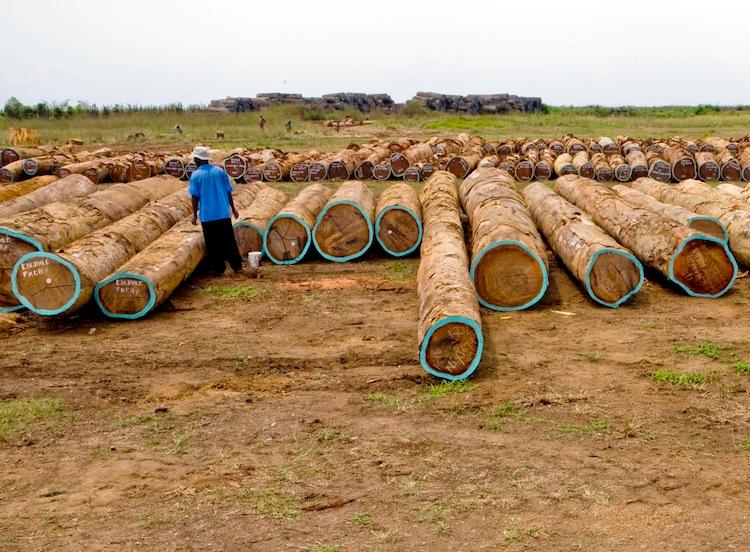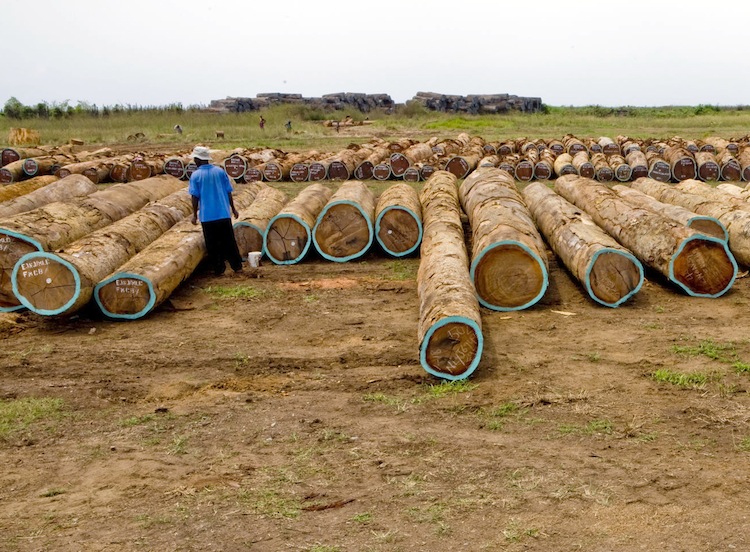Libera’s forests are being divvied up and sold off to loggers, with logging rights to as much as a quarter of the country’s land being sold off via secret contracts with the government, says a new investigation by
a U.K.-based watchdog.
“Unless this crisis is tackled immediately, the country’s forests could suffer widespread devastation, leaving the people who depend upon them stranded,” said the report issued Tuesday by
Global Witness, Save My Future Foundation, and Sustainable Development Institute.
The report says that deforestation could potentially flare up resource conflicts in the West African country just like the series of devastating civil wars from 1989 to 2003 over resources between forces loyal to former leader Charles Taylor and rebels.
New logging contracts known as Private Use Permits cover 40 percent of Liberia’s forests, with many given to firms with ties to giant Malaysian logger Samling the watchdog said. The company has been accused of over-logging the pristine forests of Borneo and has funded illegal logging in Guyana, Papua New Guinea, and Cambodia, drawing international condemnation.
“Atlantic Resources, a logging company linked to notorious Malaysian giant Samling, now controls 8 percent of Liberia’s land area through Private Use Permits despite owing millions in back taxes,” Jonathan Gant of Global Witness said in a statement.
Local communities will only receive around one percent of the profits gained through logging the forests and “very little revenue” will actually reach the government, said Robert Nyahn of Save My Future Foundation. The United States, the European Union, and others have made a point of ensuring that Liberians can sustain themselves via benefits provided from the country’s vast forests after the devastating civil wars came to an end.
“Private Use Permits are great news for logging companies. They are very bad news for pretty much everybody else in Liberia,” Nyahn added.
Such permits, he added, could undermine reforms and progress that was etched out over the past decade.
Last Friday, Liberian President Ellen Johnson Sirleaf announced an investigation into the Private Use Permits and suspended the managing director of the country’s forest authority, Moses Wogbeh. He was suspended for regulating and monitoring the permits, according to a government news release.
However, according to Global Witness, the Liberian Timber Association trade union filed several complaints with the Liberian Supreme Court and Senate.
“Too frequently, those who abuse Liberia’s natural resources have not been held to account,” Silas Siakor of Sustainable Development Institute said in the release.






